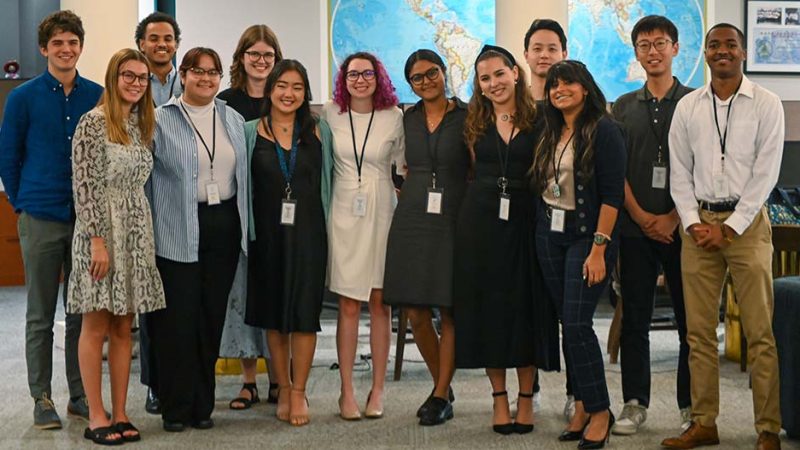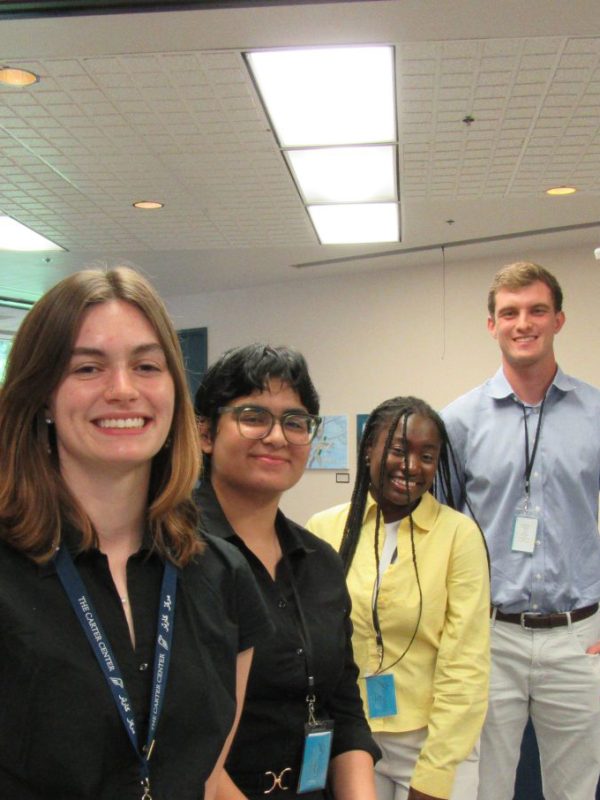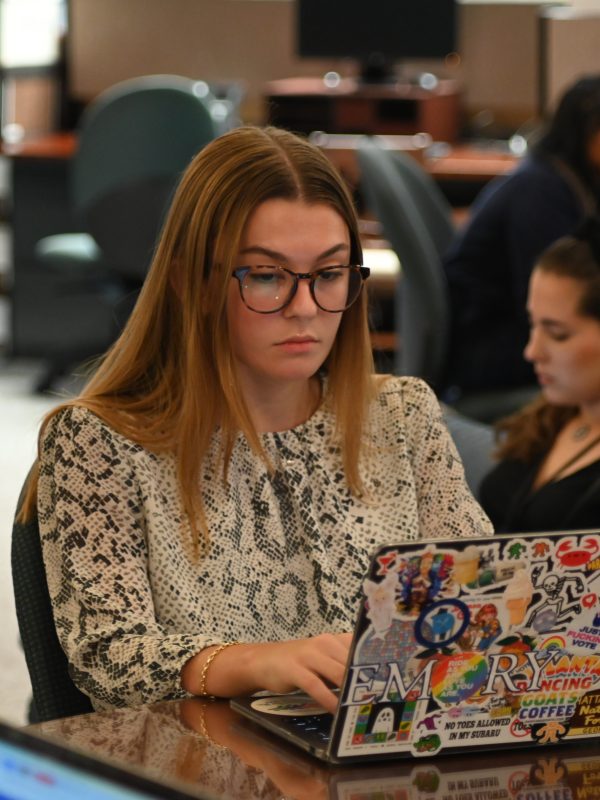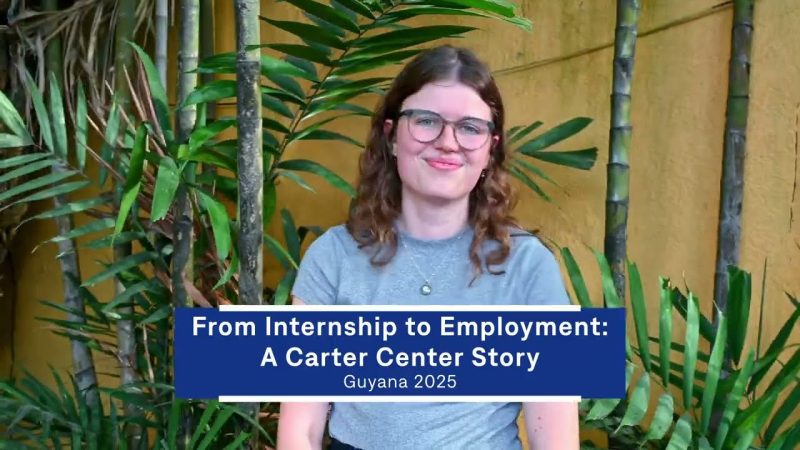Internships and Graduate Assistantships
Educational Programs

For over 40 years, the Carter Center’s Educational Programs have empowered nearly 4,000 interns and graduate assistants from around the world, providing professional growth in peace, health, and operational initiatives.
These talented individuals make meaningful contributions to the Center’s mission while gaining transformative experiences exploring career paths and building vital skills.
Ultimately, our Educational Programs aim to cultivate a new generation of informed, passionate leaders dedicated to advancing peace and health worldwide.
The Carter Center is a launching pad for careers. I’m here to help students grow professionally and make sure they’re ready for their next experience.
Internships
The Carter Center’s internship program offers a diverse set of opportunities for students and recent graduates to enhance their skills and explore career options in their fields.
Strong candidates are those who demonstrate superior academic ability and possess academic, professional, or personal experience and interests related to Carter Center programs.
To be eligible for the program, you must be an undergraduate junior or senior, graduate student, or recent graduate (graduated in the past 24 months).
Please note that these opportunities are based in Atlanta.
Explore Available Program Areas

Intern Spotlight
The most exciting part of interning with The Carter Center for David Aguilar was the opportunity to work with leaders in international development and politics — from experts at The Carter Center to former presidents of Latin American countries.
As a political science and international affairs student, Aguilar put his academic studies into practice in real-world situations. He gained valuable experience supporting our election observation mission in Venezuela, as well as contributing to projects in Bolivia, Honduras, and Colombia.
After graduating in 2024, Aguilar stayed on at the Center as a consultant, using the knowledge he gained as an intern to inform his work.
But after a successful chapter with us, we had to say goodbye. Aguilar moved on to the Johns Hopkins School of Advanced International Studies for his master’s degree and plans to pursue a career in the State Department.
His parting advice? Be flexible and embrace the opportunities you may not see coming. “You think you know what you’re going to do when you walk in,” he said. “But it might be completely different.”

Graduate Assistantships
The Carter Center Graduate Assistantship Program offers a limited number of funded opportunities for currently enrolled master’s degree and doctoral students. Graduate assistants must make a 9-12 month, 20-hours-per-week commitment and will receive hourly compensation. Please note that these opportunities are based in Atlanta.
Explore Available Program Areas

Questions?
Contact us. We’re here to help.
Dates & Deadlines
Internships
Applications will be accepted for internships on the deadline dates below.
Summer 2026 Session
Application deadline: March 2, 2026, at 11:59 p.m. ET
Start date: May 19, 2026
Fall 2026 Session
Application deadline: June 15, 2026, at 11:59 p.m. ET
Start date: Aug. 25, 2026
Graduate Assistantships
The graduate assistantship application is now open.
Application opens:
Feb. 13, 2026
Application deadline:
April 23, 2026, at 11:59 p.m. ET
Recommendation letters deadline:
April 30, 2026, at 11:59 p.m. ET
Apply Today
Start your journey at The Carter Center by applying for an internship or graduate assistantship today.

